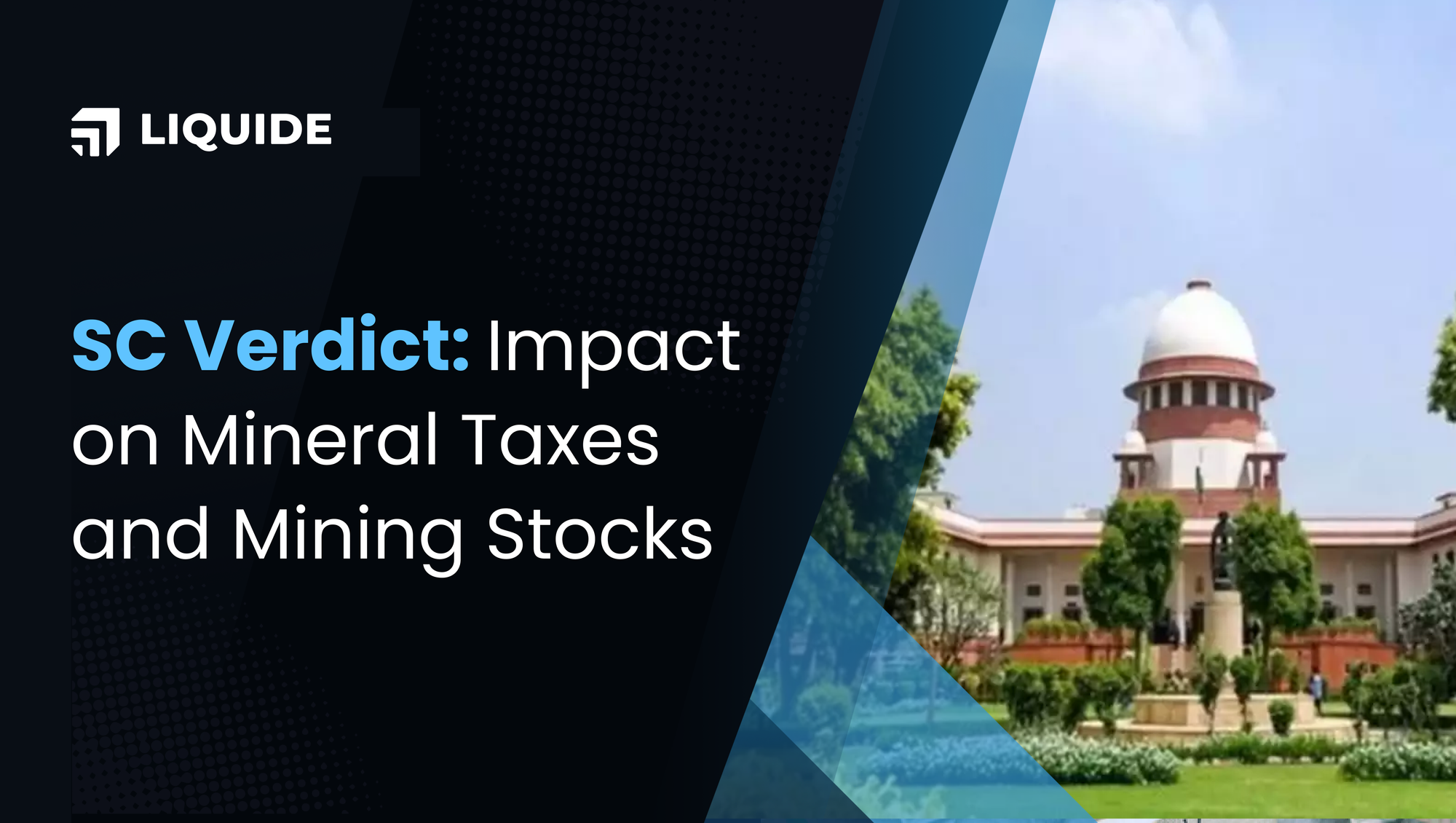New Supreme Court Verdict Shakes Up Mining Sector: State Tax on Minerals Explained
The Supreme Court's recent verdict allows states to impose mineral taxes, overturning a central mandate and impacting mining stocks. Learn how this changes financial strategies and stock valuations in the mining sector.

On July 25, 2024, the Supreme Court of India delivered a pivotal judgment affirming the authority of states to impose taxes on mineral rights and land containing minerals. This ruling negated a 1989 judgment which had vested exclusive power with the Centre to impose such royalties. The Court’s decision allows states to retrospectively collect royalties dating back to April 1, 2005, thus overriding the central government's plea for the ruling's prospective application.
Historical Context: A Shift in Mineral Taxation Authority
The legal battle over mineral taxation rights has been ongoing for over two decades, beginning with a 1989 Supreme Court decision that defined royalty as a tax. This was later challenged in 2004, leading to a series of appeals culminating in the recent nine-judge bench ruling which clarifies that royalties under the Mines and Minerals (Development and Regulation) Act, 1957, are not considered taxes.
Conditional Repayment Terms Set by SC
The Supreme Court has specified conditions for the payment of past dues, offering a structured approach for settling these financial obligations. The ruling permits the Centre and mining companies to disburse owed funds to mineral-rich states in a staggered manner across 12 years. Importantly, it prohibits states from imposing any penalties or interest on these arrears.
Broader Implications for the Sector
The announcement triggered significant volatility in major metal and mining stocks like NMDC, Hindustan Copper, Coal India and MOIL. Investors' concerns are primarily focused on the retrospective financial obligations that these companies might face due to the ruling.
The Supreme Court’s ruling has profound implications across the industry. Companies such as Tata Steel have already made contingency provisions, setting aside Rs 17,300 crore for potential retrospective claims by states like Odisha. Other firms like NMDC, MOIL, SAIL and JSW Steel, may also encounter considerable financial challenges as they adjust to the new taxation framework. On the other hand, Hindalco anticipates minimal impact due to a lack of pending claims from states.
Stay tuned to our blog for more updates and expert analysis on how the latest developments in the financial world could impact your investment strategy. Available on both Google Play Store and Apple App Store, Liquide offers up-to-date market analysis, expert recommendations, and real-time insights to guide your investment decisions. Download today and enhance your financial journey with Liquide's cutting-edge features.

